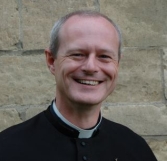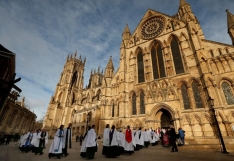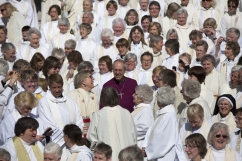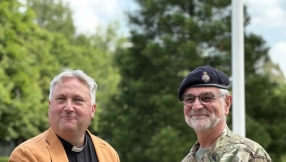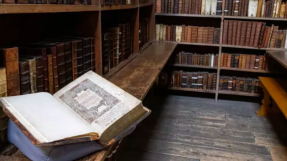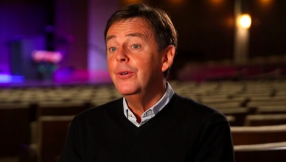Karen Gorham, Archdeacon of Buckingham, is to be the next woman bishop in the Church of England. She is to be the suffragan bishop of Sherborne, in the Salisbury diocese, where she will oversee parishes in Dorset.
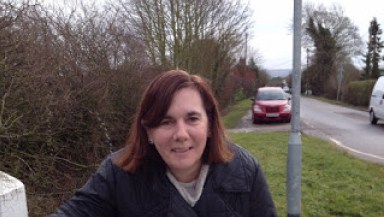
Archdeacon Gorham, who is a much-loved leader with an active interest in Celtic spirituality, blogs regularly about her ministry and in her sermons quotes poets such as the Welsh Christian RS Thomas. Her first service in the Church was as a child, sharpening pencils at Sunday School.
Archdeacon Gorham succeeds Dr Graham Kings who this summer was appointed mission theologian in the Anglican Communion. She will be the Church's eighth woman bishop and sixth woman suffragan. The Church of England has been appointing women bishops at the rate of about two in every three months since the measure to consecrate women was enacted by General Synod a year ago.
If the current rate continues, female bishops will outnumber male bishops in the established church in under a decade. There will certainly be several strong female contenders among their number to succeed the current Archbishop of Canterbury, Justin Welby.
Archdeacon Gorham, who will be consecrated in February, was introduced to the diocese by Bishop of Salisbury Nicholas Holtam at Salisbury Cathedral's Walking Madonna, Elizabeth Frink's 1981 statue of a woman going out from the Cathedral into the world. She then attended eucharist at Sherborne Abbey and visited a school.
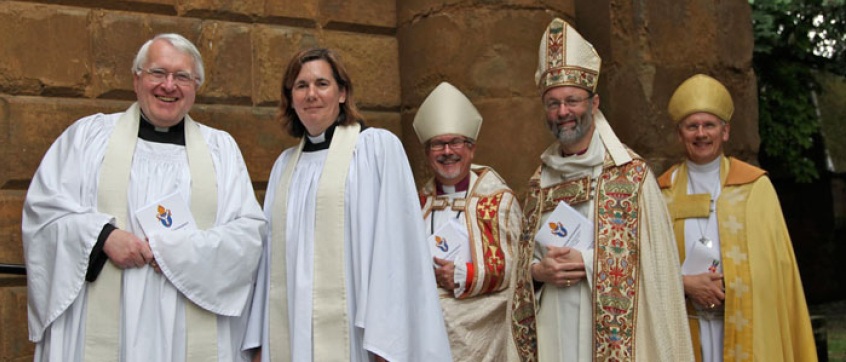
She said: "Dorset is a place of story, from Enid Blyton to Thomas Hardy, whose poetry I particularly enjoy, and we all have a unique story to tell, as individuals and as Christian Communities, of God's love and grace. That's our witness to the world, and our biggest challenge is to have the confidence to share it.
"My own story began at the age of twelve, when, having grown up in a Christian home, I volunteered to sharpen pencils for the junior Sunday School at Christ Church, Billericay. It was something I could do, and God honoured that by gradually giving me the ability to do all sorts of other things I never thought possible. These varied from teaching and eventually leading the Sunday School to ministry in the North of England; from leaving school at 18 with some typing skills to becoming an administrator; and from being someone who picked up various responsibilities in a parish to becoming an Archdeacon.
"Though I almost always felt inadequate for the task before me, I always found God in Christ there too. It's with that same trepidation that I prepare for the next task as Bishop of Sherborne, confident that the God of the past and present will have exciting things in store for the future."
She said she had always given herself wholeheartedly to God's call on her life. "As someone who has not married, over the years I've discovered the importance of friendship. Knowing the support of others throughout life is vital for us all, and in all the places I have lived and served I have been sustained through some particular friendships, people with whom I go on being able to share the joys and sorrows of day to day life with as well as hobbies and interests."
She loves walking and has done paths including Ridgeway, Mendip Way and the Thames Path. This year she also drove a racing car around Brands Hatch.
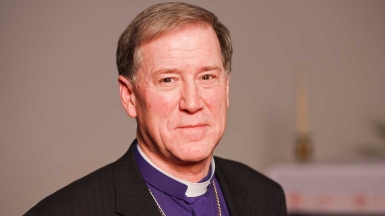
After the vote to ordain women bishops last year, Gorham wrote on her blog: "The sense of relief yesterday (yes, rather than huge rejoicing) experienced by a number of us ordained women was palpable, for us it had been personal and the decision meant that we would no longer have to defend our gender, our willingness to use our gifts or our calling by the church. Since the Rochester Report in 2004, those women who have found themselves in key positions in the C of E, be that of incumbent, or Area Dean or Archdeacon, have been called upon to explain, speak up, argue for and defend the calling of women as priests and bishops. It has been costly. The process, totally out of our hands and overseen by the House of Bishops has taken us on a roller coaster ride and it wasn't until yesterday that I realised how hard that had been."
Bishop Nicholas said: "I think St Aldhelm would be pleased with her appointment, the first woman to the See of Sherborne which he founded. She emerged as the right person for this post from a company of excellent men and women considered equally. The Anglo-Saxon Church included women in authority as well as men, like St Cuthberga of Wimborne and St Edith of Wilton."











